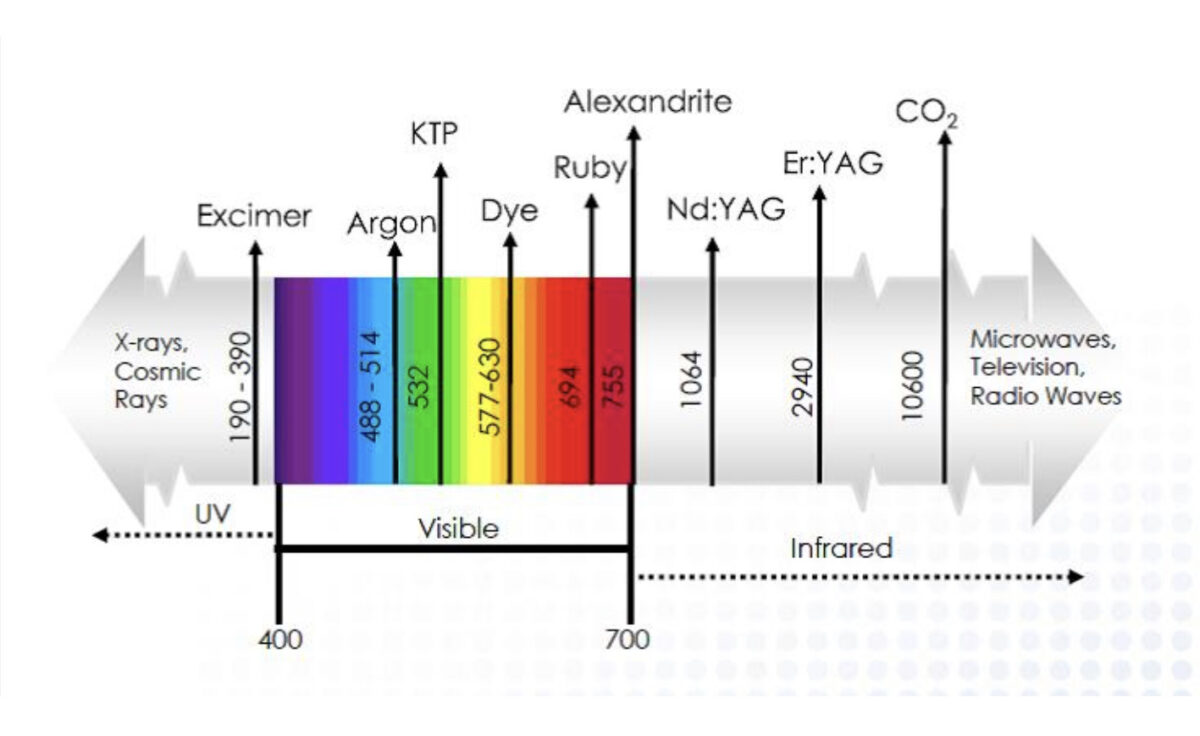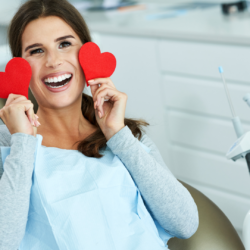There is a reason why most dental boards require advanced certificate programs for learning lasers! Lasers are highly scientific and their operation requires a thorough understanding of how they work and operate. Diode lasers emit laser wavelengths from the electromagnetic spectrum in the near infrared region, making them non-ionizing and highly therapeutic. Typical dental lasers emit light waves, aka diode waves, in range of 800 to 999 nanometers.
In a laser certification program, chemistry, physics and microbiology and histology will come back to haunt us! It’s important to take a course by a professional education program like Dental Laser Integations, where we can teach you how to understand each lasers’ parameter, and use it to its full potential.
Here are the top 20 takeaways you learn in a dentist and dental hygienist laser certification course:
- Diode lasers are semiconductor devices that generate coherent light by the process of stimulated emission.
- The active medium in a diode laser is a semiconductor diode made from a compound such as gallium arsenide (GaAs).
- Diode lasers are widely used in various applications, including telecommunications, laser pointers, laser printers, barcode readers, and medical devices.
- The emitted light from a diode laser is typically in the visible or near-infrared spectrum.
- Diode lasers are highly efficient, converting electrical energy into laser light with efficiency rates of around 50% or higher.
- The light emission from a diode laser occurs due to the recombination of electrons and holes in the semiconductor material.
- Diode lasers operate under direct current (DC) electrical input and require a power source to function.
- The output power of diode lasers can range from milliwatts to several watts, depending on the design and application.
- Diode lasers can emit continuous wave (CW) or pulsed laser beams, depending on the mode of operation.
- The output wavelength of a diode laser is determined by the energy bandgap of the semiconductor material used in its construction.
- Diode lasers can be single-mode or multimode, depending on the design and fabrication techniques employed.
- The beam quality of a diode laser is characterized by its divergence and beam profile, which can be tailored through optical shaping techniques.
- Diode lasers can be modulated to achieve various forms of signal modulation, such as amplitude modulation (AM), frequency modulation (FM), or pulse width modulation (PWM).
- Diode lasers exhibit a phenomenon known as threshold current, which is the minimum current required to achieve lasing action.
- The performance of diode lasers can be influenced by factors such as temperature, current injection, and optical feedback.
- Diode lasers require proper heat management to prevent thermal damage and maintain their performance.
- Diode lasers can be packaged in different forms, including TO-can packages, surface-mount devices (SMD), and fiber-coupled modules.
- Diode lasers can be driven by constant current or constant power sources, depending on the desired operational characteristics.
- The lifetime of diode lasers can be affected by degradation mechanisms such as catastrophic optical damage (COD) and gradual degradation.
- Diode lasers can be operated in various modes, including continuous wave (CW), pulsed, and quasi-CW modes, depending on the application requirements.
By understanding these key concepts, you will have a solid foundation in diode lasers and their operation, enabling you to grasp the majority of the subject matter. Fortunately, our courses cover these specific topics, and simplify the learning process so you know exactly what to do and how when it comes to lasering your patients! We make learning lasers fun and easy so you feel confident and ready to treat your patients!
If you would like to learn more about becoming laser certified with diode lasers, as well as becoming laser certified on CO2 and Erbium lasers, look no further! We offer live events offered online and in a city near you! See our events page for upcoming laser certification courses for dental hygienists and dentists.



